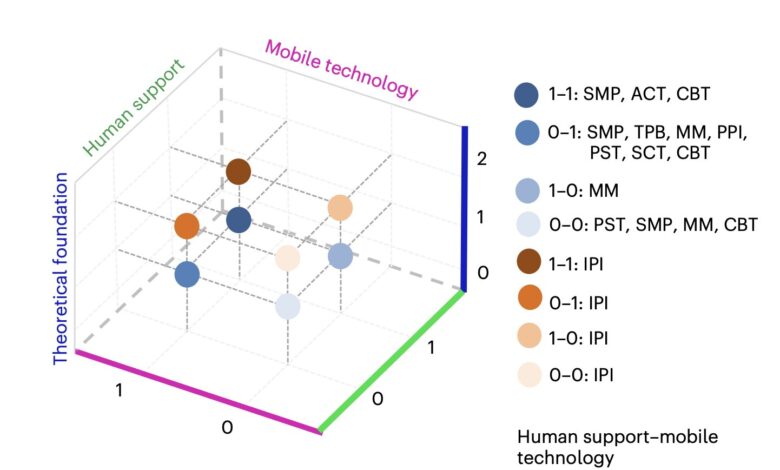Mindfulness and problem-solving therapy may be more effective

Stress has become a prevalent issue in today’s fast-paced world, especially for those living in urban areas. To address this growing problem, there has been a surge in the development of technological tools aimed at improving mental health and providing stress relief. Among these tools, smartphone applications stand out as accessible and cost-effective options for individuals looking to manage their stress levels.
Mobile apps designed to reduce rumination, promote mindfulness, and facilitate positive lifestyle changes have gained popularity due to their convenience and affordability. However, the effectiveness of these apps in actually reducing stress and enhancing overall well-being has been a topic of debate. To shed light on this matter, researchers at Peking University conducted a review study and meta-analysis of existing literature on mobile applications for stress management.
Their study, published in Nature Human Behaviour, analyzed a wide range of research papers that assessed the efficacy of smartphone apps for stress reduction. By utilizing Bayesian statistical techniques, the researchers were able to compare different types of mobile interventions and identify key factors that influence their effectiveness. Surprisingly, they found that human support and mobile technology did not significantly impact the outcomes of these interventions.
The study highlighted three types of mobile interventions that showed promise in reducing stress: stress management programs, problem-solving therapy, and mindfulness meditation practices. These findings could potentially inspire the development of new mobile applications focused on mental well-being and stress management. Additionally, existing apps may benefit from incorporating features based on the practices deemed most effective by the research team.
Overall, the research suggests that mobile interventions rooted in cognitive behavioral therapy, problem-solving therapy, and mindfulness meditation may offer valuable tools for individuals seeking to alleviate stress. By leveraging the insights from this study, developers and mental health professionals can work towards creating more effective and targeted mobile solutions for stress relief.
In conclusion, the study underscores the potential of mobile applications in promoting mental health and stress management. As technology continues to play a significant role in our daily lives, harnessing its power to support mental well-being could have far-reaching benefits for individuals struggling with stress. The findings of this research pave the way for innovative approaches to stress management and highlight the importance of leveraging technology for mental health support.





